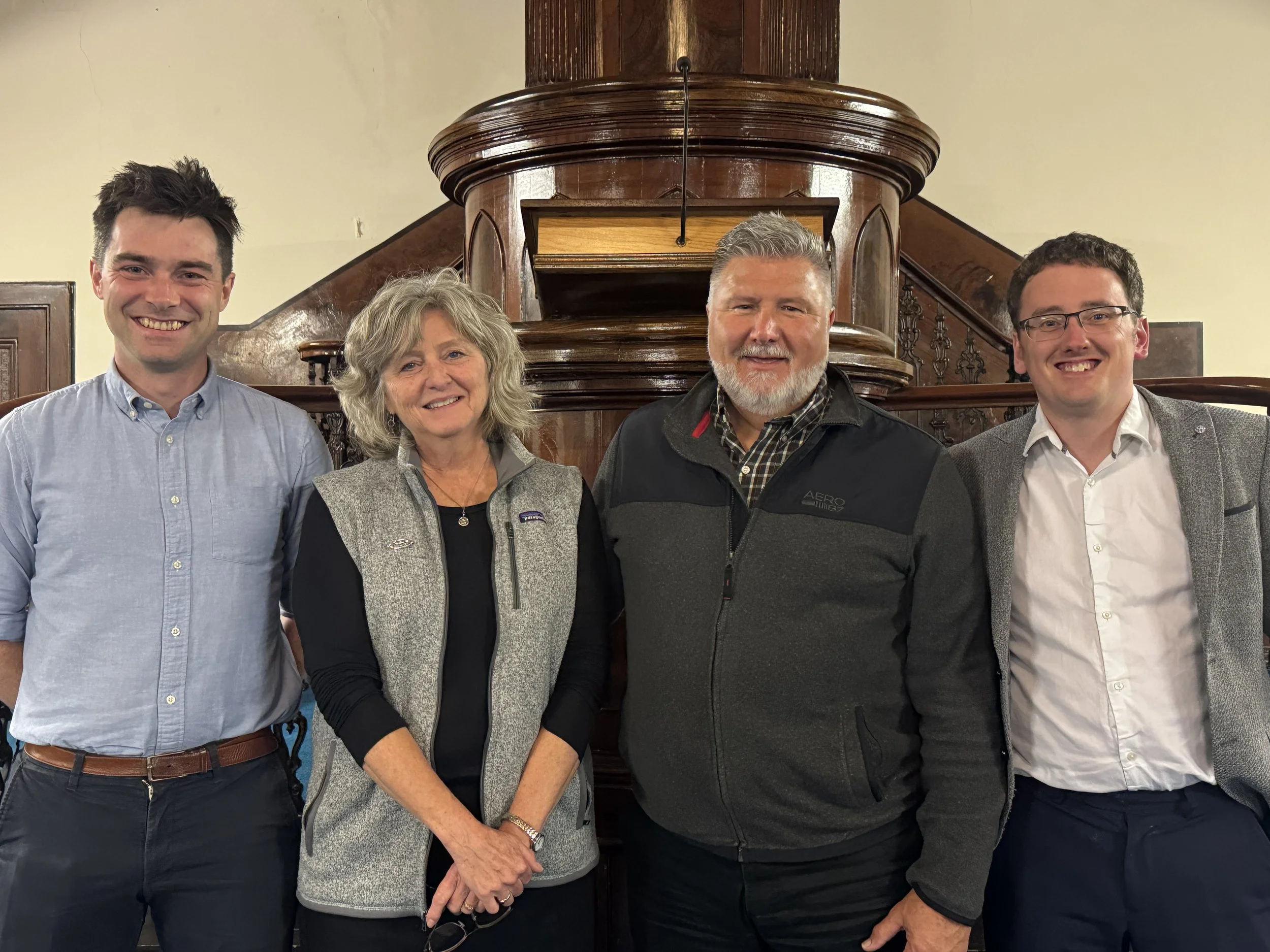Pride and disappointment were the dominant emotions on Saturday night as the Team GB, with strong Stranraer representation, came up just short in the men’s curling final. Just as it was four years ago in Beijing, they had to settle for silver — despite leading after six ends and looking on course to end a 102-year wait for gold.
Curling has a rich heritage around these parts. Someone recently shared an article from the Galloway Gazette reporting on a match that took place between the Rhins and Machars in December 1875. The match took place at the suggestion of a “Dr Easton of Stranraer”, who, it turns out, was an elder in our congregation. In those days, of course, curling was an outdoor sport. Easton had first broached the idea the previous year, but “John Frost was unfavourable”. Not to be deterred, the “Grand Bonspiel at Loch Skerrow” took place the following year, despite melting ice forcing the pitch to be shortened at places. The Gazette dubbed it “the most important match that has ever been played in Galloway”.
Fast forward 150 years and the BBC website was running articles about the hotel ice rink in Stranraer producing some of Scotland’s best curlers. Given all the local interest, anticipation was at fever pitch as Team Mouat recovered from a mixed showing during the round robin matches to reach the final. Alas, the Canadians saw their opportunity and took it.
Will our boys give it one more go in 2030? Time will tell, but either way they are local heroes. They won’t be welcomed back home with anything other than open arms.
It’s the same sort of pride in the achievements of locals that saw Andy Murray greeted by 15-20,000 people in Dunblane (population 9,000) after winning Olympic gold and the US Open.
It reminds me of the time that Jesus returned to his hometown, after making a name for himself by preaching and healing elsewhere. It looked like he too would be welcomed with open arms. As he stood up to preach in Nazareth, “the eyes of all in the synagogue were fixed on him”. Indeed, “all spoke well of him and marvelled at the gracious words that were coming from his mouth”. And yet before the day was out, his hometown crowd would try to kill him.
A few verses earlier we’re told that as Jesus had taught in other synagogues he had been “glorified by all”. What was different in his hometown? In short it was the old adage that familiarity breeds contempt. They said: “Is this not Joseph’s son?” We can almost hear them: “Aye, it’s the carpenter’s boy – we kent his faither”.
It’s the same today. Many have a sense that something is badly wrong with the world — but the idea of going to church and hearing why that is, and what God has done about it, doesn’t cross their minds.
At one point, being found with a Bible could have got you killed. 2026 marks 500 years since William Tyndale’s translation of the Bible into English; he was burnt at the stake for his efforts. Nowadays – in the West, at least – there’s no such danger. Yet many reject it without ever having read it. Familiarity breeds contempt.
So, too, with biblical morality. Fraser Nelson wrote in the Times last year that “If marriage had been invented in 1970s Scandinavia, it would be hailed as a progressive superweapon — the first, best and cheapest source of health, wealth and education … But somehow, being pro-family has ended up seen as moralistic, judgmental and old-fashioned”.
Some have understandably been put off by bad church experiences, or seeing those those who “trusted in themselves that they were righteous, and treated others with contempt” (Luke 18:9). But don’t throw the baby out with the bathwater.
In the wake of the Winter Olympics, it’s been heartening to see the popularity of “Try Curling” sessions. The North West Castle had to add more because of the “incredible demand”. Our kids can’t wait until they’re old enough to give it a go. What a pity it would be to live within a stone’s throw of a rink and never try it!
Yet many in Scotland live and die without every really considering the claims of Christianity. They assume they know what it is, and write it off as irrelevant. But why not try it?
It can be daunting to walk through the doors of a church for the first time, but we tend to find that once people do, they don’t look back. Ourselves and the Baptist Church also offer a 3-session introduction called “Hope Explored”. Think of it as a bit like our version of “Try Curling”! There’s no commitment – but you might be surprised at what you find.
Published in the Stranraer & Wigtownshire Free Press, 26th February 2026.





